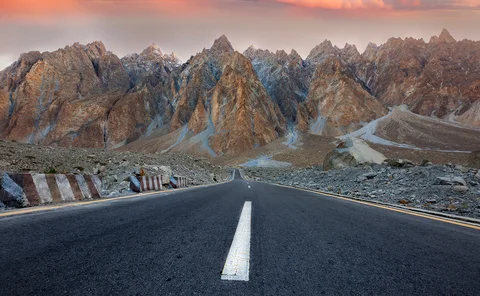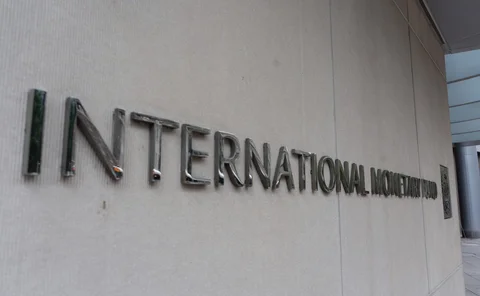Emerging markets
IMF and World Bank chiefs call for more action on debt relief
But G20 fails to agree extension to the Debt Service Suspension Initiative
EME financial markets are still vulnerable – BIS paper
Covid crisis has shown further market development work is needed, writes head of CGFS secretariat
IMF warns unprecedented central bank support may fuel instability
Investors may be too optimistic about recovery, IMF report says
Trends in reserve management: 2020 survey results
Covid-19 expected to dent the risk appetite of central bank portfolio managers; socially responsible investing gains ground
Central banking enters a new era
Central banks face a delicate balancing act to preserve their reputations as they evolve into ‘buyers of last resort’ and some of their actions appear functionally equivalent to ‘monetary financing’
Stress levels rising: investment funds and the Covid-19 shock
Extreme market stresses due to Covid-19 are underscoring the central role non-banks play in crisis contagion, as in 2008. Were regulators better prepared this time?
The complex art of reserve management
The coronavirus lockdown represents another inflection point for central banks seeking to optimise the management of their $12 trillion in FX reserves
Rising to the challenge – Reserve management in an uncertain world
Amid unprecedented measures being taken by central banks and governments to combat the global Covid‑19 pandemic, BlackRock‘s Stephan Meschenmoser, Laszlo Tisler and Crystal Wan compare and contrast BlackRock’s model portfolio against its high-grade…
Qatar bolsters Turkey’s shrinking reserves
Agreement sees Qatar add $10 billion to Turkey’s reserves via swap agreement
CBRT battles external imbalance with dwindling reserves
Turkish central bank loses battle to keep lira under 7 as reserves shrink, but pressures may be easing
The Belt and Road Initiative 2020 Survey – A more sustainable road to growth?
The third annual Belt and Road Initiative (BRI) survey reveals that central banks view BRI investment as sustainable compared with other forms of external debt, particularly given it is often proportionally less significant. Despite growing global trade…
IMF urges countries to use fiscal firepower against Covid-19
“Do whatever it takes, but make sure to keep the receipts,” says IMF fiscal chief
Financial resilience may be tested further by Covid-19 – IMF
“Sudden stop” in credit markets could feed back to real economy, and requires a “forceful response”
IMF projects deepest recession since Great Depression
Global growth could contract by between -3% and -6% this year, a combined loss of output of $9 trillion for 2020 and 2021
Sarb cuts rates to historic low
Unanimous decision comes as growth outlook and inflation forecasts revised; South Africa’s risk profile has increased
Central banks may have to become ‘dealers of last resort’ – BIS economists
EMEs have not overcome “original sin” by deepening local currency bond markets, authors warn
Concentrated firepower: central banks must expand their arsenal
Philip Turner argues central banks should be prepared to go further to avoid economic and financial collapse
Fed expands network of swaps to emerging markets
Emerging markets will now have direct access to a dollar backstop, but it is still limited
Banks rush to tap new dollar liquidity facilities
IIF warns of major capital flight from emerging markets as demand for Fed-backed repos surges
Central banks grapple with dollar funding crunch
Indicators of stress hit highest levels since global crisis; dollar backstops may soon be tested
Book notes: The art of economic catch-up, by Keun Lee
Rather than merely catch-up, the book offers countries advice in making a sea change in their economic statuses
Georgieva backs Antoinette Sayeh as IMF deputy managing director
Liberian economist formerly headed up fund’s Africa department
IMF chief warns of ‘dire’ coronavirus scenarios
Virus has already impacted global growth but effect could worsen if containment fails
FSB boosts role of regional groups in decision-making
Review finds groups valued and should have greater say in FSB affairs























